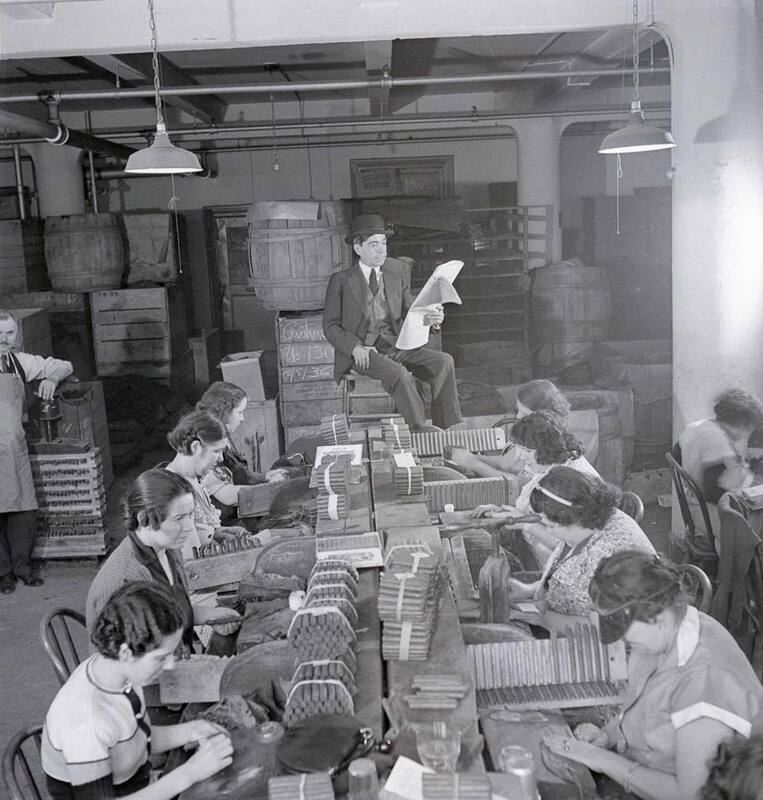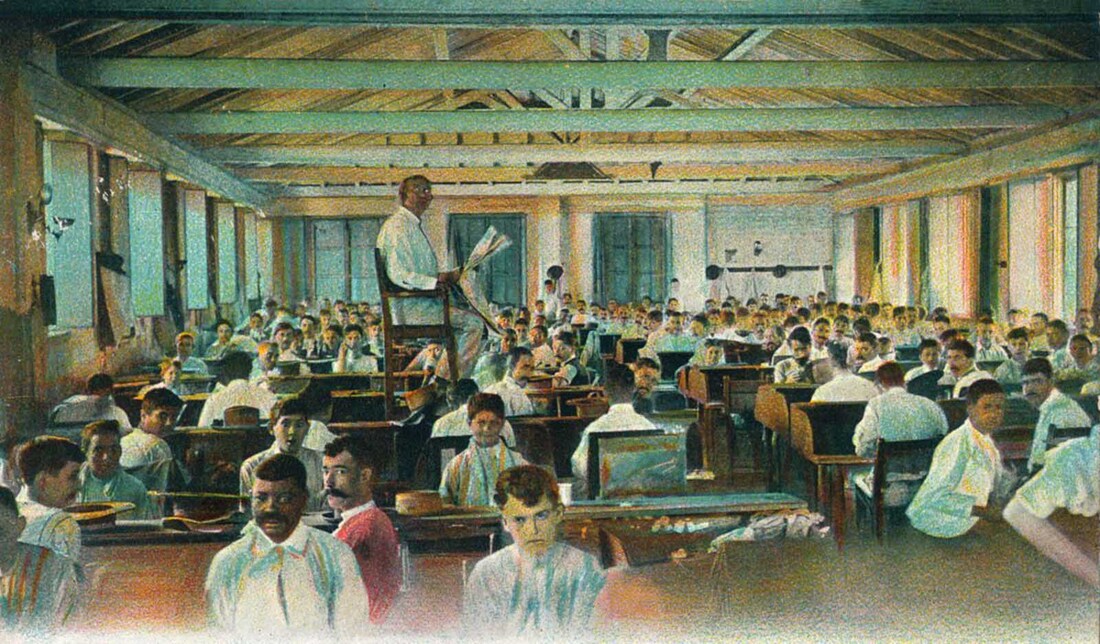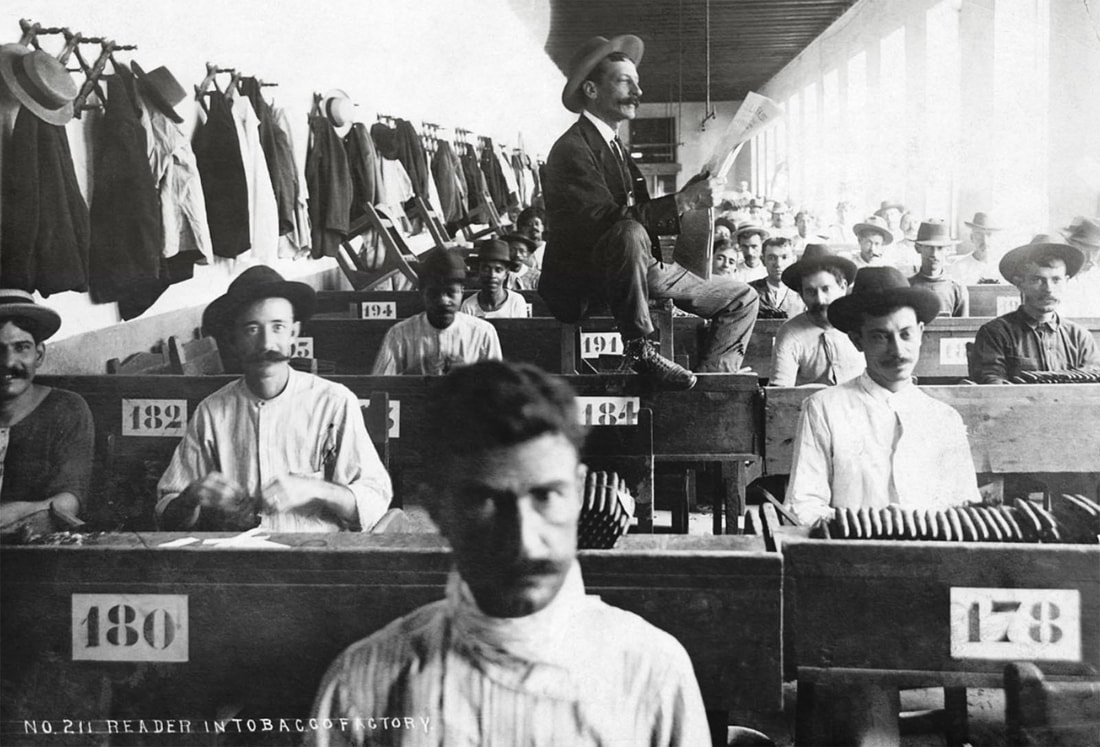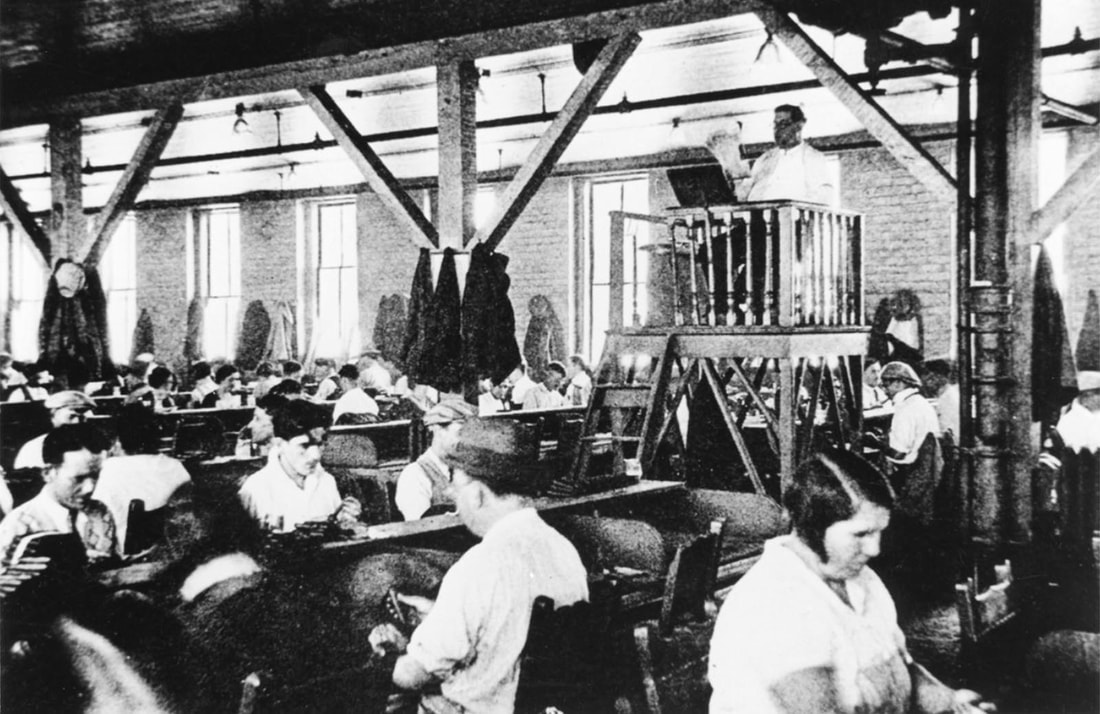|
I stumbled across a fascinating little article about the role that Lectors-people who would read books and newspapers aloud in factory settings-played in keeping workers entertained throughout the day. It reminded me of when I worked in my dad's machine shop through high-school and college. I plowed through a significant number of audiobooks while operating the CNC Machine or cleaning up the shop at the end of a long night shift. Looks like narrators have always been out there doing the good work! Here are some great pics/blurbs from the article... "The readers, elected by their peers, were actually marvelous actors and would not simply read the book but literally act out the scenes in a dramatic fashion upon a podium set up in the middle of the factory." "The workers would each give 25 to 50 cents of their weekly salary to elect a fellow workman to act as “the reader” in which he would read aloud not just only newspapers, but even classical works of literature such as Tolstoy or Dickens." "The lectors were forced out of the factories when what they were reading was deemed too radical. This caused widespread strikes and work slowdowns." Check out the full article at Rare Historical Photos here
0 Comments
Few people have done so much to make audiobook production more accessible and reliable than Steven Jay Cohen so despite staring down the barrel of a dystopian future devoid of human performance, I'm going to listen when he says of AI:
"Panic, anger, fear, hatred — all of these will work against us as we try to figure out how best to move forward. I don’t think there is much value in taking a luddite stance against the technology since historically, that has never worked out well for the group doing the protesting... We are too early in the state of change for anyone to predict where this will all end. Now is the time to explore how each of us might adapt the art of what we do into other venues, other media. Now is a time of experimentation. Now is a time to take some artistic risks, and to learn."
In our culture we LOVE product but rarely understand the value and necessity of investment. This is an issue in almost every industry but one I feel keenly each time I'm cast in a show that expects broadway quality performance but with a three week rehearsal period.
Producers will always demand the gold but will rarely supply the necessary time/tools. Eventually, those insisting on the cheapest path of least investment will burn through their staff and their company will suffer. If you doubt this, go chat with some costume shop managers about why their departments have such a high turnover. (and now back to books) I'm curious to see if/when publishers understand that this technology can be an effective tool instead of just the cheapest alternative to paying human beings a living wage. Now on Audible
Southern California, 1996: a peaceful, scenic day in the coastal community of Santa Monica, except that there is a meter maid lying next to the sidewalk–dead. Fresh from a messy divorce case, North Hollywood private investigator Clive Wilts is on the case to find the killer before the bodies start stacking up and the city streets become a parking free-for-all.
North Hollywood PI Clive Wilts once again becomes an unwilling local celebrity when he happens into the media-embellished case of The Santa Monica Sniper.
This is the third book I've worked on by Eric H. Heisner and I've thoroughly enjoyed each one. This one in particular had a light and ready sense of humor throughout. I'm looking forward to many more Clive Wilts stories. |
Josh InnerstI'm an actor and voice over artist. Shakespeare pays the bills but I make the food... Archives
August 2023
Categories |





 RSS Feed
RSS Feed
